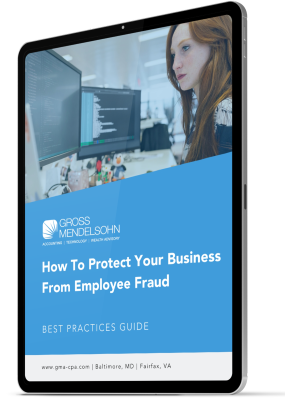Despite what many of us would like to believe, fraud schemes continue to plague the nonprofit sector. Difficult to spot and even harder to catch, fraudsters are often employees with a degree of authority and can go years without detection, making fraud prevention all the more necessary.
In my webinar, Fraud Prevention for Nonprofits: Avoiding Fraud Schemes and Fraudsters, I discuss some common fraud schemes nonprofits face and ways to prevent them. This article focuses on billing schemes — what they are, how to identify the red flags and how to detect and prevent them.
What Are the Types of Billing Schemes?
Billing schemes allow fraudsters to steal significant amounts of funds over an extended period of time and are divided into three principle types:
1. False Invoicing Via Shell Companies
This billing scheme involves a shell company, a fake entity created by the fraudster, which is used to bill the organization for goods and services. In a large percentage of cases, the perpetrator is in a position to approve payment of the very invoices they are fraudulently submitting.
Fraudsters in this scheme rely heavily on false documents, like purchase orders, to perpetrate the fraud. The fraudster will also most likely bill for the purchase of fake services rather than goods. This means fraudsters of this scheme are more likely to forge a fake invoice for consulting services than a shipment of pens, in which the lack of a physical product would raise a red flag.
2. Invoicing Via Non-accomplice Vendors
Also known as a “pay-and-return” scheme, this billing scheme involves a fraudster purposely double paying an invoice, requesting one of the checks be returned and then intercepting the returned check and cashing it. In this case, the vendor is not involved in the fraud and usually doesn’t know it’s occurring.
Variations of this scheme include purposely paying the wrong vendor or paying the proper vendor but purposely overpaying them. This type of scheme might require the fraudster to alter an existing vendor invoice or create a counterfeit copy of an invoice.
3. Personal Purchases With Company Funds
In this billing scheme, the fraudster might be the authorizer of invoices. This scheme involves false purchase requisitions where the fraudster either makes personal purchases on company credit cards or accounts, or returns merchandise purchased with company funds for cash or store credit.
What Are the Red Flags?
Some common red flags when it comes to billing schemes include:
Unfamiliar vendors or variations on an approved vendor’s name
A fraudster may try to bypass red flags by altering the name of an approved company such as changing ABC, Inc. to ABC, LLC.
Invoices for unspecified or poorly defined services
Fraudulent invoices may be vague in order to avoid drawing attention.
Vendors that only have a P.O. box address
It could be a sign they don’t actually exist.
Sudden increases in purchases from one vendor
A fraudster may just be cashing in on your organization.
Vendor addresses that match employee addresses
The company invoicing you for five hours of business consulting probably isn’t being run out of your employee’s living room.
Unusually quick turnaround of invoices
Speedy turnaround may mean your fraudster is in a hurry to cash in
Large billings that are broken into multiple smaller invoices that will not attract attention
Flying under the radar is a fraudster’s top priority, and they will do anything to avoid detection.
How Do I Catch the Fraudster?
As tricky as it may be, there are several ways to detect a billing scheme. For one, an analytical review could illuminate unusual or unexpected items that could be the result of a billing scheme. This includes computer assisted analytical review, in which a program is able to flag matching addresses between vendors and employees, multiple vendors with the same address or unusual “one-time” extra charges.
Another detection source could come from complaints from non-accomplice vendors (i.e., vendors who are not involved and serve as an unintended victim of the fraud) who are tiring of the mounting administrative cost of returning checks and refunding double payments.
How Can I Prevent Billing Schemes In My Organization?
The best bet when it comes to staving off billing schemes is through prevention.
Prevention tips include:
1. Review your list of vendors on a periodic basis
By regularly reviewing your vendor list, you are better able to spot any unusual additions and can flag any strange addresses or vendors that stand out as atypical.
2. Large or unusual purchases should be approved by multiple employees
When it comes to preventing fraud, a system of checks and balances, and internal controls are your main allies. By requiring big ticket purchases to be approved by multiple employees, you greatly reduce the likelihood that a fraudster can slip in an unauthorized charge without detection.
3. Analyze vendor purchases for abnormal levels
If an invoice for 1,000 printer cartridges crosses your desk for your organization of 30 employees, it’s time to start taking a second look at your past and future purchases. By keeping an eye on any abnormal levels, you ensure that not only are the right purchases being made but also that a fraudster isn’t at work.
What If I Suspect Fraud In My Organization?
One great way to better understand fraud is by talking to experts who can answer your questions, give you some real-life fraud prevention tips and point out any red flags.
To speak with one of our Certified Fraud Examiners, contact us online or call 800.899.4623.


